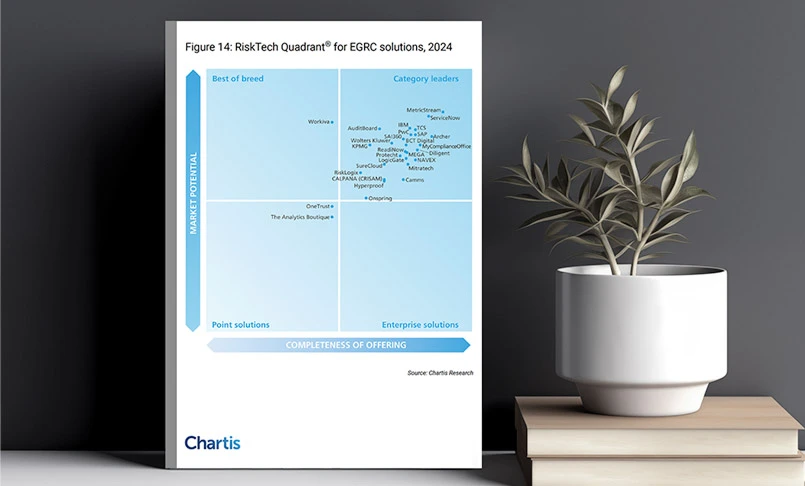Workforce Resilience
- GRC
- 31 July 20

Introduction
Everybody is now talking about the pandemic. Several of the impacts of the pandemic are obvious – we are at home, our activities are restricted, people are falling ill and hospitals are overwhelmed. There are some hidden impacts of the pandemic on businesses. For example, the corridor conversations we had, or the gossip we exchanged in the pantry, are now missing. Meeting colleagues in person, which used to be something we did every day, is now months away. While these may seem trivial, the psychological impact of these should not be underestimated. For several people, the only personal contact they have is with whomever they share their house. Their contact with people outside is purely transactional or task related. Social distancing, for many, has become physical or social isolation.
It is easy to develop a sense of disconnect with the work organization in such an environment. It is also quite possible that the absence of normal human connects leads to undesirable complications, such as depressive behavior. People living alone or in nuclear families are especially prey to such complications.
The Indian Psychiatric Society reported a 20 percent increase of mental health concerns, such as depression and anxiety disorder, due to the pandemic lockdowns. Stress and panic attacks have increased by over 35 percent. Most of these increases have been in the age group of 26-40 years old, a group that is typically quite mobile and rely on social interaction. These are alarming statistics.
Organizations, people managers and HR teams cannot assume that their jobs got easier. In fact, the need is even greater now to ensure that employees, and their experiences, are healthy. It should be noted that focusing exclusively on employee productivity, which is natural in these times, is a losing proposition. We cannot evaluate effectively whether low productivity is due to low health/ engagement or vice versa.
Organizations, therefore, need to ramp up their efforts to ensure employee health as this cannot always be left to their HR departments, which are typically small teams in most organizations. Here are some recommendations for organizations to adopt that will help in giving employees a good experience and letting them know they are cared for.
1. Flexibility
a. Work from Home is not Work 24 X 7
Several managers/organizations tend to take the view, “Hey, you’re at home anyway, can you do this now?” A key element to mental health is to allow time to regroup, to refresh and to rest. Managers should work to ensure that they respect personal time or time off. Individuals should be clear about their working hours and should not pressure themselves to work on personal time. As an example, teams in the same geography could agree not to assign work or send emails between, say, the hours of 7 and 11 p.m.
b. Minimize screen time
Meetings in the office often allowed us to exercise our brains without staring into a screen. With meetings also online now, time spent with screens has shot up. Easy access to social media sites such as Facebook, Twitter and Instagram can make one get lost in a world of make-believe. Constant exposure to bad news, which gets the biggest headlines, can lead to hopelessness. Without the counterbalance of good, healthy human contact, this is a severe danger. Managing screen time or leveraging it for engagement activities or games also helps in deflecting the impact of constantly being online.
2. Personal Touch
Video calls with team members make a huge difference and allow for a certain degree of personal interaction that is missing with audio calls. Seeing colleagues also helps stay connected with more than just a voice. Leveraging these video calls to talk about items other than just work will allow us to discover nuances that play through facial expressions and body language. The interactions will enable us to better spot someone in distress. They also provide an opportunity for informal connects, to partially replace the corridor/ pantry conversations. Leaders and managers should institute practices to such calls as a regular affair.
3. Showing Empathy
a. Put employees first.
Building morale, in normal times, usually comes secondary to productivity and profitability. In these special circumstances, it is important for employees to be reassured that their organizations care for them. Implementing health advisories, and instituting programs that put additional focus on employees, are good steps to undertake. As an example, Costco implemented hazard pay for its frontline employees to show them that they are appreciated.
b. Providing a helpline
People may find it very difficult to reach out to colleagues or managers for help, especially when the issue is to do with emotional or mental health. In such cases, reaching out to someone who is trained to help people process their thoughts and emotions is a good recourse. Organizations should make available therapists/helplines for this purpose.
4. Winding Down
Team spirit or camaraderie is not built only through work related interactions. Team outings, for a dinner or a game, have proved to be great at building relationships. Substitutes for such gatherings should be attempted, even if done remotely. Video-based online lunch meetings or evening drink and dinner gatherings are great substitutes for winding down and providing some bit of socialization.
5. Communication
With the severe impact the pandemic has had on business, employees are anxious about their jobs. Consistent, timely and transparent communication is key to managing employee anxiety. Employees who receive such regular updates are more likely to stay engaged with their organizations.
While there is a lot more that can be done, the actions above can help in building workforce resilience, without which no organization can stay in business, even after the pandemic is over.






